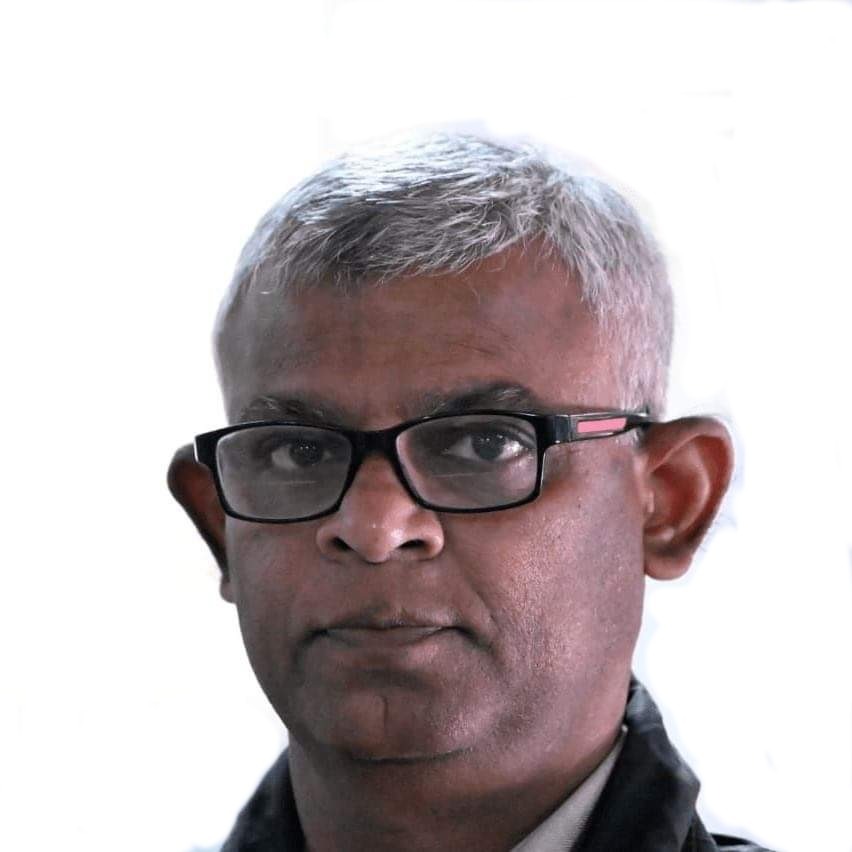The main elements of righteousness are: raising both hands in proper greeting or salutation; speaking softly; humility; sharing in others’ grief; pointing out the path to someone; aiding the downtrodden; providing light in the dark; transporting the sick to a medical facility or doctor; helping the poor; providing sound counsel; shielding the defenseless from violence and oppression

Niraj Krishna
In the commonly used term, ethics, or ethos, is related to behavior. Terms used to describe a person’s behavior include customs, morality, behavior, ethical conduct, attitude, etiquette, propriety, and integrity. The closest counterpart in Hindi is called “maryada” (मर्यादा), which stands for proper behavior or dignified conduct—a crucial aspect of moral education. As a result, the scriptures refer to the methods of transcendental advancement as religion (धर्म) and the means of worldly advancement as policy (नीति). Still, spirituality and transcendental advancement are related.
Dharma, or that which is worthy of adoption, is what a person adopts as a virtuous method, in my opinion. Dharma and spirituality are therefore broad topics. However, in this case, the topic is policy, which is another name for behavior or a code of conduct. The behavior that is proper given the circumstances is determined by policy. Therefore, policy is a relative discipline or subject that encompasses life conduct. As a result, the core of policy is behavior. Altruism and morality are referred to as “shila.” The cornerstones of walking the road of truth and succeeding in life are policy and dharma. In English, this is called righteousness, or good behavior.
The main elements of righteousness are: raising both hands in proper greeting or salutation; speaking softly; humility; sharing in others’ grief; pointing out the path to someone; aiding the downtrodden; providing light in the dark; transporting the sick to a medical facility or doctor; helping the poor; providing sound counsel; shielding the defenseless from violence and oppression; providing for the hungry; acting with both body and mind; speaking the truth; etc. Acharya Manu identified 10 principles—knowledge, truth, non-anger, self-control, purity, control of the senses, completing tasks, forgiveness, patience, and self-control—as the constituents of Dharma. Simply said, “non-violence is the supreme duty; speak the truth, follow righteousness, and perform acts of charity.”
Which essential policy recommendations are these? Never be critical of others; share the finest things; show respect for parents, elders, and visitors; be benevolent; give up forbidden behaviors; use restraint while speaking; surround yourself with inspirational people (it is believed that wisdom cannot exist apart from association with the wise); Read well-written books; abstain from dishonest behavior; always act with dignity; shun greed; and resist from self-praise. When someone embodies these attributes in their actions, they undoubtedly rise to a position of great regard in the eyes of everybody, a status known as righteousness or good behavior.
Consequently, a few responsibilities should be chosen for frequent study and practice, such as constantly working to improve the welfare of others by word, deed, and thought; keeping up a healthy diet and lifestyle; exercising self control over the senses; surrounding oneself with learned individuals to elevate wisdom; serving and honoring parents and elders; showing hospitality to visitors; and abstaining from lust, anger, greed, attachment, and injustice.
The Vedas do not advocate living only for oneself or for one’s own gain. Instead, they suggest prayerfully asking God to “lead us from falsehood to truth, from darkness to light, from death to immortality,” and thinking about this all the time. Alternatively, “endeavor to unite, speak agreeably, and understand knowledge with the mind, just as the gods unitedly worship in the same manner as before.” Maintaining mutual solidarity is always important.
In our culture and traditions, maintaining dignity is very important. Respecting dignity is so important that it keeps everything in life in balance and harmony. Living a dignified life means keeping all of one’s thoughts, acts, and behaviors within the bounds of moral and societal norms. Only then will their circumstances and course in life begin to improve, and they will be able to live lives of greatness.
Power comes easily to those who embrace the truth in life, but it is hard to keep the truth above the surface of power. Like Lord Rama, are those who gain authority while remaining true to themselves. Everyone ought to emulate Lord Rama’s self-discipline in their daily life.
The everlasting reality of Vedic culture is attributed to the Vedas, which are regarded as divine or timeless. For this culture is also the gift of humanity’s oldest history and civilization. The task of methodically organizing human society was assigned to the sages, but now there is total chaos in place of discipline. This explains why Vedic culture has persisted from prehistoric times to the present. It’s an amazing but timeless fact.
Discipline is eroding in every area of life, including politics and daily conduct. The uncivilized conduct of this civilization exposes its savagery. However, we have to acknowledge that discipline is a concept and a disciplined life is something we can see and learn from in our own society as well. Maryada Purushottam is the name of Lord Shri Ram. Shri Ram committed his life to the betterment of society and the country while upholding the greatest moral and spiritual standards.
Setting and upholding limits is essential for maintaining peace, love, and order in society as well as for avoiding disagreements and turmoil in relationships. Nonetheless, not everyone finds it simple to maintain discipline. Society collapses, discipline is fractured, and discipline is shattered. During these moments, sensible people maintain discipline, inspire others, and carry out their responsibilities. We refer to them as great. Discipline is deteriorating in today’s culture.
We witness a lot of disorderly conduct these days on social media. The lines are crossed occasionally via hate and intolerance, occasionally through crude remarks, occasionally through pornographic posts, and occasionally as a result of some irresponsible behavior. In addition, as a result of the younger generation’s poor socialization, certain segments of society are crossing borders out of self-interest, while the younger generation is surpassing all barriers in pursuit of fleeting pleasure. As such, cultural legacy and social structure are steadily eroding.
A person of virtue will be spiritual and disciplined. Discipline is opposed by engaging in transient selfishness, compromising another person for non-spiritual reasons, and surrendering one’s dignity and self-respect for non-spiritual reasons. It is imperative that you stay away from them. We must build independence, fearlessness, and selflessness by conquering narrow-mindedness, fearlessness, and apathy in our lives. Being narrow-minded has a negative impact on one’s thought process and causes optimism to leave one’s body.
Thus, discipline is eroding in everything from politics to day-to-day conduct. The uncivilized conduct of this civilization exposes its savagery. However, we have to acknowledge that discipline is a concept and a disciplined life is something we can see and learn from in our own society as well. Because Lord Shri Ram committed his life to the betterment of society and the country, he is known as Maryada Purushottam, even though he lived by the greatest moral and spiritual standards.
All of humanity should also be shown an ideal and exemplary existence in addition to that. Obedience and discipline are necessary for a social creature. Maintaining discipline does not imply feeling restrained or repressed; discipline can only be demonstrated by abiding by the precepts of spiritual principles. A person of virtue will be spiritual and disciplined. Discipline-defying behaviors include succumbing to transient selfishness, sacrificing one’s integrity, and displaying self-respect for non-spiritual components. You have to stay away from them. One must develop selflessness, bravery, and detachment in life by conquering narrow-mindedness, selfishness, and fear. Being narrow-minded has a negative impact on one’s mentality and saps one’s inner optimism.
It is expected of people to mold their conduct to fit the social norms. Ignorance of this is viewed as harmful to society. It’s also regrettable that we expect more discipline and self control from others than we do from ourselves. As a result, everyone has to understand that maintaining discipline is the duty of all citizens as well as the whole community and country. A sound social, cultural, and national discipline can only be upheld in that case.
Even if there are material luxuries available, there is restlessness throughout the whole country and society. It is clear how a corrupt person affects the country. The atmosphere of the country has been contaminated by things like deceit, bribery, corruption, jealousy, hate, and selfishness. In society, there is a lot of rape, excessive violence, immorality, and corruption. Every person is anxious and unsettled. The political sphere has become illegal as a result of political attacks on morals.
Politics has corrupted morals, and the ambition to be a member of Parliament and the Legislative Assembly has fostered avarice. Because of this intensity and growing selfishness, terrorism has also been fostered. Government employees and executives alike have been self-indulgent and opportunistic. The center of the intellect ought to pursue power in a manner consistent with all moral and human principles.
For selfish gain, no one thinks twice about carrying out horrible deeds. The public has suffered greatly as a result of corrupt and unchecked governance. For a variety of reasons, governments even refuse to recognize people’s fundamental rights, and public servants and politicians continue to take advantage of the populace by stealing or imposing unnecessary taxes. Everything is dark. Every citizen aspires to contribute positively to society by acting in a cooperative, kind, and peaceful manner.
It takes purity of speech and conduct to develop into a polished and civilized citizen. You can satisfy and win over everyone with your demeanor and kind language. This is the yardstick and cornerstone of morality. Every household should have two old books—the tales of Panchatantra and Hitopadesha—so that children and other family members might periodically read them and gain appropriate instruction and direction from them.
Even the gods are in concern over the nation these days, since among the 1.42 billion people living there, no one is rising to the level of Gandhi. When humanity will be tormented by the extreme darkness of the Kali Yuga is unknown. It is absurd to think about civility in such a circumstance. As a result, there is a character crisis right now, and as someone once stated, “If character is lost, everything is lost.” Nevertheless, we’re all waiting for the glimmer of optimism, wondering when and how it will appear.


